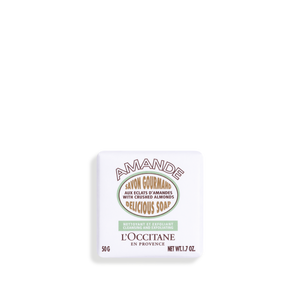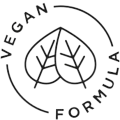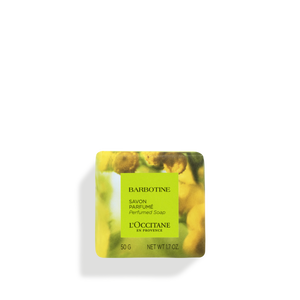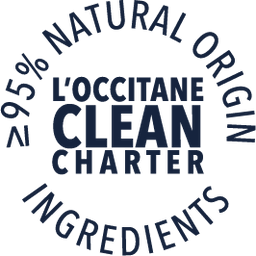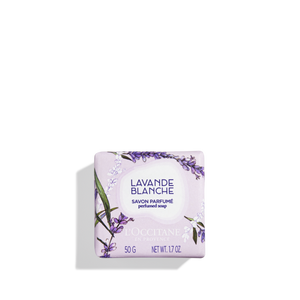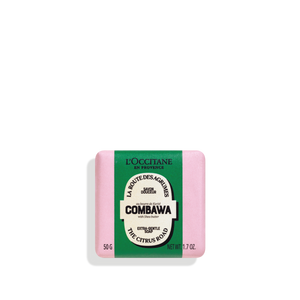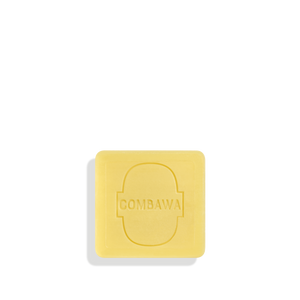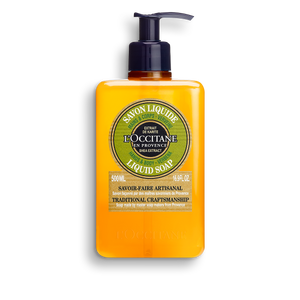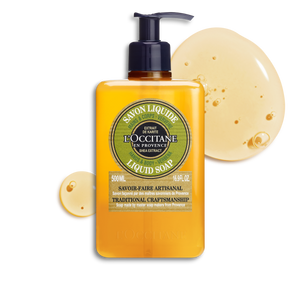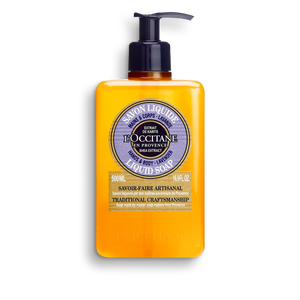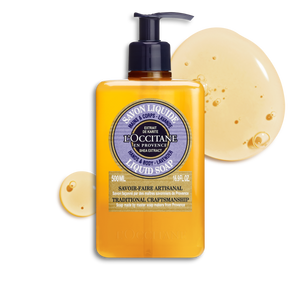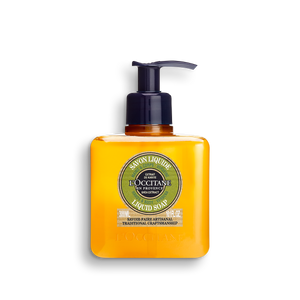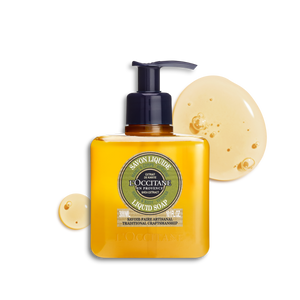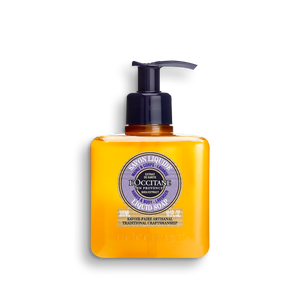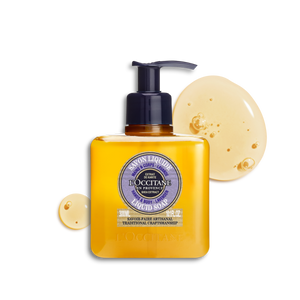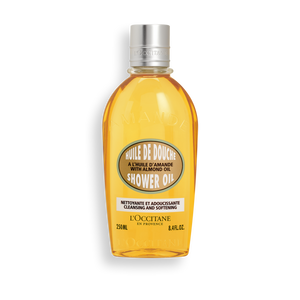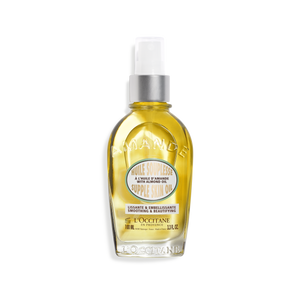The Art of Soaps

At L’Occitane, we've been making solid and liquid soaps since 1980, when Olivier Baussan purchased the first soap making materials. Ever since the creation of L'Occitane, all our soaps have been made exclusively from plant oils using a hot process method, as this is the only method that guarantees a complete saponification reaction.Soap gets rid of bacteria and virus's, while also cleansing the skin. They are made up of a fatty substancemixed with an alkaline agent. The physical form of the soap (solid, liquid or paste) depends on the fats/oils and alkaline agents used to create it.
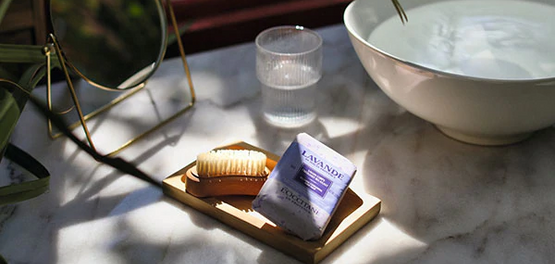
THE BENEFITS OF SOAP
Soaps are good for your skin
• Effectively cleanses the skin: very powerful cleansing agents, a unique feeling of cleanness.
• Helps to maintain the skin's hydrolipidic film: to a certain extent, the action of the soap stimulates the glands that produce sebum, which is one of the elements that makes up the skin's protective barrier.
• Soap has a bacteriostatic and fungistatic effect:it inhibits the growth of bacteria and fungi.
Soaps are good for the environment
• Most soaps contain good levels of naturalness and biodegradability.
• Duration of use: a bar of soap can be used for a longer time when compared with a liquid cleansing product. On average, in terms of quantity, we use more liquid cleansing product than solid soap. If we start with exactly the same amount of both products, the bar of soap will last longer than the liquid soap.
• Packaging: soap bars require minimal packaging. Our new L’Occitane liquid soaps offer a bottle made from 100% recycled plastic or there is the option to purchase our Eco-refills.
Purchasing soaps support craftsmanship
• When you buy a L'Occitane soap – whether it's liquid or solid– you're helping to keep alive a Provençal craft and ancestral skills.
In the Alps of Haute-Provence, L'Occitane carries on the tradition of the master soap makers of Marseille. Forover 40 years, it has supported a philosophy and skills that have been handed down through generations. The master soap makers have shared their knowledge with us, with a concern about modern changes, but a determination to be loyal to the past. It is essential that we respect their methods and keep the past alive.
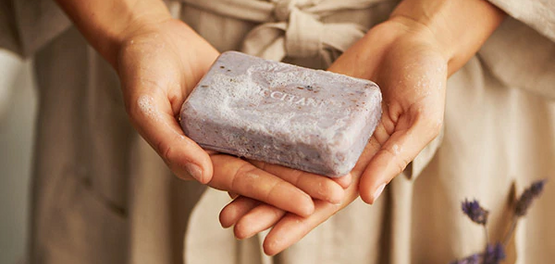
WHY USE L'OCCITANE SOAP?
L'Occitane has long been inspired by the traditional skills of the master soap makers of Provence. For the past few years, we have been thinking about bringing our soap range up to date, to make it look different and to renew interest in traditional soaps. Our soaps have always been rich in fatty acids. We use plant-based soap noodles, which can contain 78 to 80% fatty acids –known to be good for the skin. Our Shea soaps are cooked the traditional way, in a cauldron. After saponification, we can add shea butter, to obtain ultra-rich soaps enriched with shea, which is also known for its skin benefits.
DID YOU KNOW
Soap doesn’t dry out your skinSoaps are often accused of having a "drying" or "tightening" effect on the skin, and it is true that they often have a powerful, almost "detergent" cleansing action.
When you wash your skin with soap, it rids the skin of dirt and can also strip it of its hydrolipidic film, which covers the surface of the epidermis and constitutes an essential protective barrier against environmental aggressors. However, over the long term, using a soap in some ways helps the skin to strengthen its resistance to stresses as, every time you wash, it "forces" the skin to rebuild this hydrolipidic film, which is essential to its barrier function.
Not only does the soap clean the skin, it also stimulates the glands that produce sebum, which is one of the elements that forms the skin's protective barrier. L’Occitane enriches its soaps with natural ingredients that are beneficial to the skin, such as shea orbotanical oils (almond,olive,etc.). These help to nourish the skin and keep it balanced, while the fatty acids in a soap also provide nourishing benefits.
The difference between Bar and Liquid Soap
The main steps involved in producing a solid soap and a liquid soap are the same. However, there are also some significant differences:
1) The alkaline agent used in the saponification reaction is different. Caustic soda (sodiumhydroxide) is used to make solid soap, while potash (potassiumhydroxide) is used to make liquid soap.
2) For a liquid soap, the soap is diluted until the desired concentration is achieved, so it can be packed into a bottle.
FUN FACT - In France, for a soap to be called "liquidsoap", it must contain at least 10% fatty acids, while a “solidsoap" must contain at least 76%.
The difference between Liquid Soap and Shower Gel
A shower gel is a combination of ingredients that have already been processed, while a soap is made directly from the finest ingredients, such as oils (botanical oils at L'Occitane). Another difference is that the pH of a liquid soap is higher than that of a shower gel. The basic (alkaline) pH of the soap is a parameter that contributes to the powerful cleaning function of soap. The pH of a shower gel is more neutral as it is closer to the natural pH of adult skin.
Soap doesn't expire overtime
Over time, any soap is bound to dry out. Similarly, soaps may also lose colour and fragrance over time, but this does not make it any less effective! You should follow the PAO (Period After Opening) which is found on the back of the product when its products life exceeds 30 months. All L'occitane soap bars have a shelf life of 36 months. Before using your soap bar, be sure to keep it in a dry place, away from light and humidity. From the day you start to use your soap, it’s important to not let it sit in water between uses. It should be able to dry out (on a soap dish) while it's not being used.
Soap doesn't hoard bacterica
Soaps have a bacteriostatic effect, this means that they inhibit the growth of bacteria. Therefore, we can touch soap with bare or dirty hands without worrying about contaminating the soap or ourselves. Even if soap is wet, it is still "sealed" against bacterial contamination.
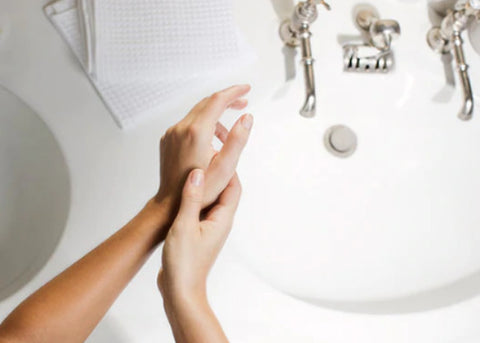
YOU'RE IN GOOD HANDS
Discover the best of hand care products by L’OCCITANE. From luxurious hand creams that moisturise and restore dry chapped hands, to nourishing soaps, creamy handwashes and hand softening scrubs.
discover now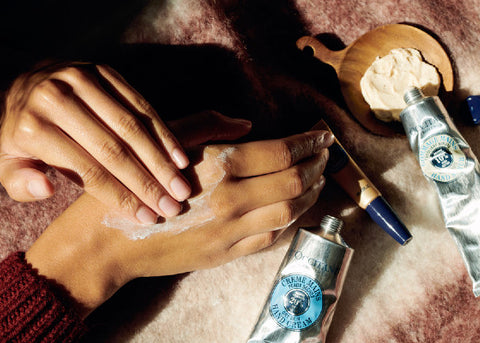
4 Simple Steps To Rejuvenate Your Hands
With age comes infinite wisdom, a new appreciation for experiences and time spent with those we love, and more than a few stories to tell. However, age has its drawbacks too, particularly when it comes to the skin and the way that our exterior appears both in appearance and texture.
find out moreRecommended Articles
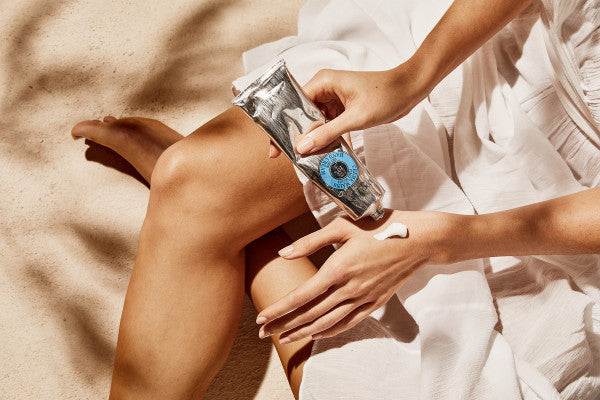
HOW TO CHOOSE THE BEST HAND CREAMS FOR YOU?
While we all remember to take care of our face, the same can't be said for our hands… If you want to keep your hands looking beautiful all year round, follow our beauty guide!
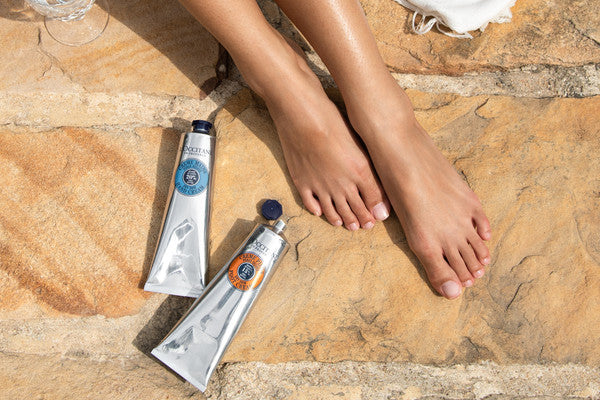
HOW TO CARE FOR YOUR FEET?
Your feet carry you around all day long, so it's important to care for them. Give them the treatment they deserve and you'll feel the difference.
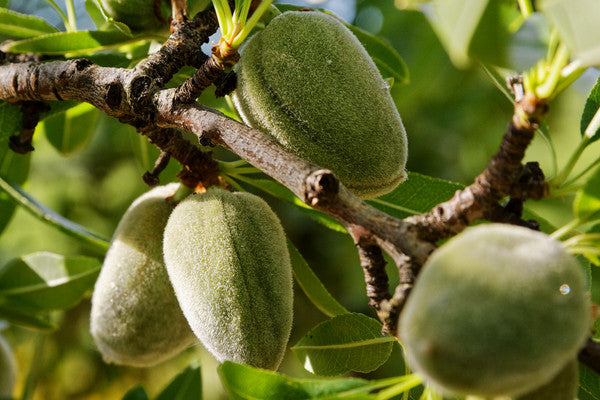
OUR GUIDE TO FIRMER SKIN
Discover how to get rid of cellulite using natural ingredients. Follow our tips and choose the right products to firm and refine your body.
